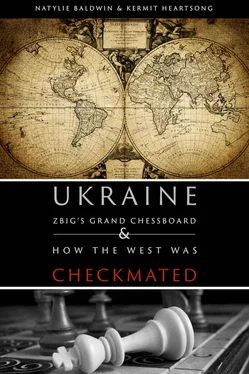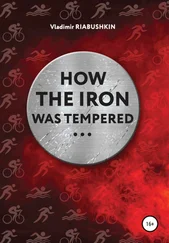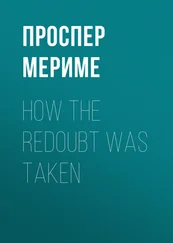Kermit Heartsong - Ukraine - ZBIG's Grand Chess Board & How The West Was Checkmated
Здесь есть возможность читать онлайн «Kermit Heartsong - Ukraine - ZBIG's Grand Chess Board & How The West Was Checkmated» весь текст электронной книги совершенно бесплатно (целиком полную версию без сокращений). В некоторых случаях можно слушать аудио, скачать через торрент в формате fb2 и присутствует краткое содержание. Год выпуска: 2015, Жанр: Политика, на английском языке. Описание произведения, (предисловие) а так же отзывы посетителей доступны на портале библиотеки ЛибКат.
- Название:Ukraine: ZBIG's Grand Chess Board & How The West Was Checkmated
- Автор:
- Жанр:
- Год:2015
- ISBN:нет данных
- Рейтинг книги:4 / 5. Голосов: 1
-
Избранное:Добавить в избранное
- Отзывы:
-
Ваша оценка:
- 80
- 1
- 2
- 3
- 4
- 5
Ukraine: ZBIG's Grand Chess Board & How The West Was Checkmated: краткое содержание, описание и аннотация
Предлагаем к чтению аннотацию, описание, краткое содержание или предисловие (зависит от того, что написал сам автор книги «Ukraine: ZBIG's Grand Chess Board & How The West Was Checkmated»). Если вы не нашли необходимую информацию о книге — напишите в комментариях, мы постараемся отыскать её.
Ukraine: ZBIG's Grand Chess Board & How The West Was Checkmated — читать онлайн бесплатно полную книгу (весь текст) целиком
Ниже представлен текст книги, разбитый по страницам. Система сохранения места последней прочитанной страницы, позволяет с удобством читать онлайн бесплатно книгу «Ukraine: ZBIG's Grand Chess Board & How The West Was Checkmated», без необходимости каждый раз заново искать на чём Вы остановились. Поставьте закладку, и сможете в любой момент перейти на страницу, на которой закончили чтение.
Интервал:
Закладка:
• Ihor Tenyukha member of Svoboda party, became the Minister of Defense.
• Oleksandr Sych,another member of the Svoboda, became one of the three vice prime ministers.
• Oleg Makhnitsky,yet another member of the neo-Nazi Svoboda organization, became Prosecutor-General (Attorney General)(Becker 2014).
Of course, the inability of the Western media to call into question the obvious — a Ukrainian regime topped with neo-Nazis at key defense and intelligence positions in the country — is, at best, troubling. At worst, it is damning for Western media, the self-styled arbiters of truth, transparency, and justice. It would appear on this fact alone that Western media have become little more than replanted organs of state propaganda.
Crimea
The ironies, contradictions and hypocrisies of Washington and its European allies towards the people of Crimea are staggering. Western standards are readily being seen to be nothing but empty, cynical rhetoric, used to conceal their own rapturous embrace of “law of the jungle.”
— Finian Cunningham
Crimea is an autonomous region within Ukraine and seems to have the same rights as a Canadian province. So if it is perfectly legal for a province such as Quebec to hold a referendum on independence, why would it not be legal for Crimea to do the same? At no time did the USA object to Quebec holding a referendum on independence, so why the big brouhaha over Crimea? Moreover, what business would it be for the USA to have such objections — for Quebec or Crimea?
— John Ryan, Ph.D., Retired Professor of Geography and Senior Scholar, University of Winnipeg, Canada
There is, of course, a relatively recent example that provides a great deal of enlightenment with regard to how the West interprets matters of international law when it suits their best interest and the lengths to which they will go to legitimize the outcome.
On March 24, 1999, President Bill Clinton began an eleven-week “humanitarian” bombing campaign against the sovereign state of Yugoslavia, as governed by President Slobodan Milosevic. There was no UN mandate and no referendums prior to or during the bombing campaign. The end goal for the West was an independent Kosovo.
The casus belli for the Yugoslavian bombing campaign was human rights. Allegations of atrocities at the level of genocide were being leveled by Clinton Administration officials, who claimed at the time that upwards of 100,000 Albanian refugees had been murdered by the Serbs (Scahill 2008).
The truth of the matter, however, would be something completely different, not unlike the cry of “WMDs” in the Bush Administration’s run up to war with Iraq. As investigative journalist Jeremy Scahill points out in his article, “The Real Story Behind Kosovo’s Independence,” something else altogether was behind the seventy-eight day NATO bombing campaign:
A month before the bombing began, the Clinton administration issued an ultimatum to President Slobodan Milosevic, which he had to either accept unconditionally or face bombing. Known as the Rambouillet accord, it was a document that no sovereign country would have accepted. It contained a provision that would have guaranteed US and NATO forces “free and unrestricted passage and unimpeded access throughout” all of Yugoslavia, not just Kosovo. It also sought to immunize those occupation forces “from any form of arrest, investigation, or detention by the authorities in [Yugoslavia],” as well as grant the occupiers “the use of airports, roads, rails and ports without payment.” Additionally, Milosevic was told he would have to “grant all telecommunications services, including broadcast services, needed for the Operation, as determined by NATO.” Similar to Bush's Iraq plan years later, Rambouillet mandated that the economy of Kosovo “shall function in accordance with free market principles.” (Scahill 2008)
It was an offer that President Milosevic could not possibly accept, and simultaneously, it was an offer that he could not possibly refuse.
One month later, after Milosovic rejected Clinton’s extortion demand, the bombing began. What followed on the ground in Yugoslavia as a result of NATO’s “humanitarian” war:
So the humanitarian bombs rained down on Serbia. Among the missions: the bombing of the studios of Radio Television Serbia where an airstrike killed 16 media workers; the cluster bombing of a Nis marketplace, shredding human beings into meat; the deliberate targeting of a civilian passenger train; the use of depleted uranium munitions; and the targeting of petrochemical plants, causing toxic chemical waste to pour into the Danube River. Also, the bombing of Albanian refugees, ostensibly the people being protected by the US. (Scahill 2008)
In the end, there had been no massacre of 100,000 Albanians or 50,000 or even 10,000.
The International Tribunal itself reported that just over 2,000 bodies were recovered from postwar Kosovo, including Serbs, Roma, and Kosovars, all victims of the vicious civil war in which we intervened on the side of the latter. The whole fantastic story of another 'holocaust' in the middle of Europe was a fraud. (Raimondo 2008)
There had been no genocide at all. The “Albanian genocide” would be the precursor of Iraqi WMD’s.
How then does the Crimean referendum compare to Kosovo’s referendum and the West/NATO’s involvement toward a sovereign Kosovo?
Crimea, officially an autonomous region formally within Ukraine, has had its own parliament and, up until 1995, its own President. The majority of Crimeans, Russian-speakers, had voted repeatedly for close relations with Russia in referendums in 1991, 1994, and 2008 (Raimondo 2014). It is also important to note that the Crimean region had been a part of Russia and then the Soviet Union from 1783 to 1954, until handed over to the Ukraine by Nikita Khrushchev.
In a 1994 referendum on closer ties with Russia, Crimeans voted overwhelmingly, nearly 80 %, in favor of the referendum. And in 2008 the Crimean Parliament voted to rejoin Russia, while in the same year one million Crimeans signed a petition demanding that the Russian fleet be allowed to retain its presence in Sevastopol (Raimondo 2014).
Immediately after the new Kiev regime leaders assumed their respective offices, their first act was to outlaw the Russian language (the first language of a vast majority of Crimeans and Novorossiyans). What followed was the destruction of Russian war memorials that had been erected to celebrate Ukraine’s liberation from the Nazi Third Reich. Then came the violent physical attacks on the Russian-speaking population of Ukraine and their various representatives in the Communist Party and the Party of Regions by the neo-Nazi security forces of the new regime.
The Crimeans, aware that the new coalition was composed of yet more corrupt oligarchs and now neo-Nazis working at the behest of the West, did not believe that the new regime in Kiev would “represent their interest or respect their rights” (Raimondo 2014). The Crimeans quickly sought an exit from the new Ukraine and the coup-installed government now in charge of the Ukrainian state and acts which, as we will detail later, had rendered the Ukrainian constitution null and void. As Justin Raimondo states in his article, “Crimea for the Crimeans:”
With officials of the ultra-rightist Svoboda party — formerly the “Social National” party — in top positions in the new government in Kiev, and with the outright neo-Nazis of “Right Sector” being handed control of police and law enforcement bodies, Crimeans are refusing to recognize Kiev’s authority. The Crimean Parliament has — once again — declared independence and appealed to Russia for security guarantees, while the head of the Ukrainian navy, which is stationed in Sevastopol, has defected to the Crimean side. (Raimondo 2014)
Читать дальшеИнтервал:
Закладка:
Похожие книги на «Ukraine: ZBIG's Grand Chess Board & How The West Was Checkmated»
Представляем Вашему вниманию похожие книги на «Ukraine: ZBIG's Grand Chess Board & How The West Was Checkmated» списком для выбора. Мы отобрали схожую по названию и смыслу литературу в надежде предоставить читателям больше вариантов отыскать новые, интересные, ещё непрочитанные произведения.
Обсуждение, отзывы о книге «Ukraine: ZBIG's Grand Chess Board & How The West Was Checkmated» и просто собственные мнения читателей. Оставьте ваши комментарии, напишите, что Вы думаете о произведении, его смысле или главных героях. Укажите что конкретно понравилось, а что нет, и почему Вы так считаете.











